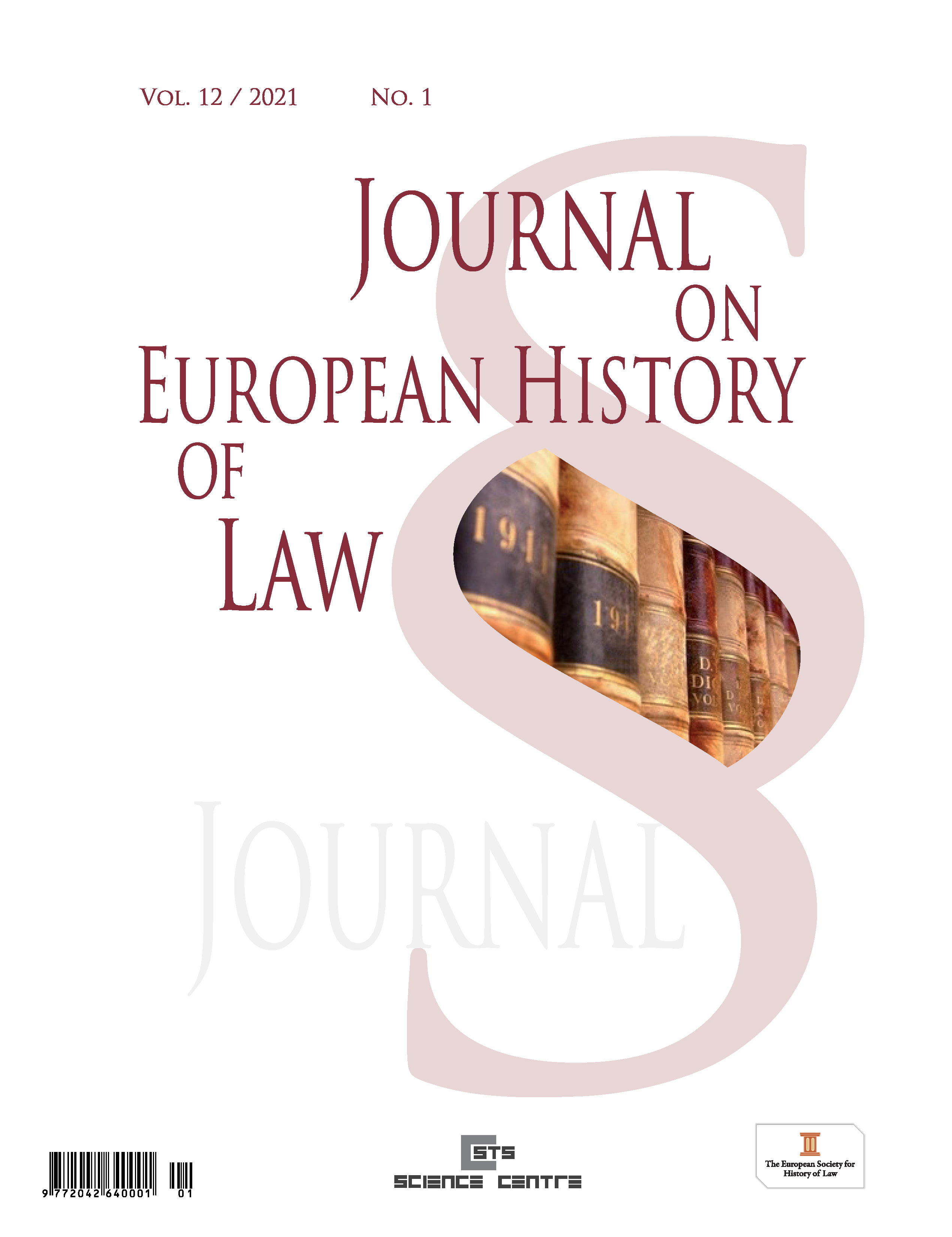The Death Penalty in Hungary during the Enlightenment and the Reform Era
The Death Penalty in Hungary during the Enlightenment and the Reform Era
Author(s): Zoltán Tóth J.Subject(s): History, Law, Constitution, Jurisprudence
Published by: Evropská společnost pro právní dějiny, z.s.
Keywords: Hungary; capital punishment/death penalty; Hungarian absolutism; abolitionism; Enlightenment; Hungarian revolution and war for independence of 1848-1849; martial law.
Summary/Abstract: The present paper reviews the history of capital punishment in Hungary from the second half of the 18th century until the middle of the 19th century. This is an important period on the road to the abolition of capital punishment in Hungary (as well as in the enlightened countries of Europe) during which the death penalty would not be abolished, but its use would become exceptional for ordinary crimes. For extraordinary crimes, mainly in martial law regulations, however, it remains applicable, and, in these cases, it is even used in an extended manner. This can be observed in Hungary especially in the months of the revolution and war for independence of 1848-1849, and in the years of retaliation that followed it.
Journal: Journal on European History of Law
- Issue Year: 12/2021
- Issue No: 1
- Page Range: 121-129
- Page Count: 9
- Language: English

